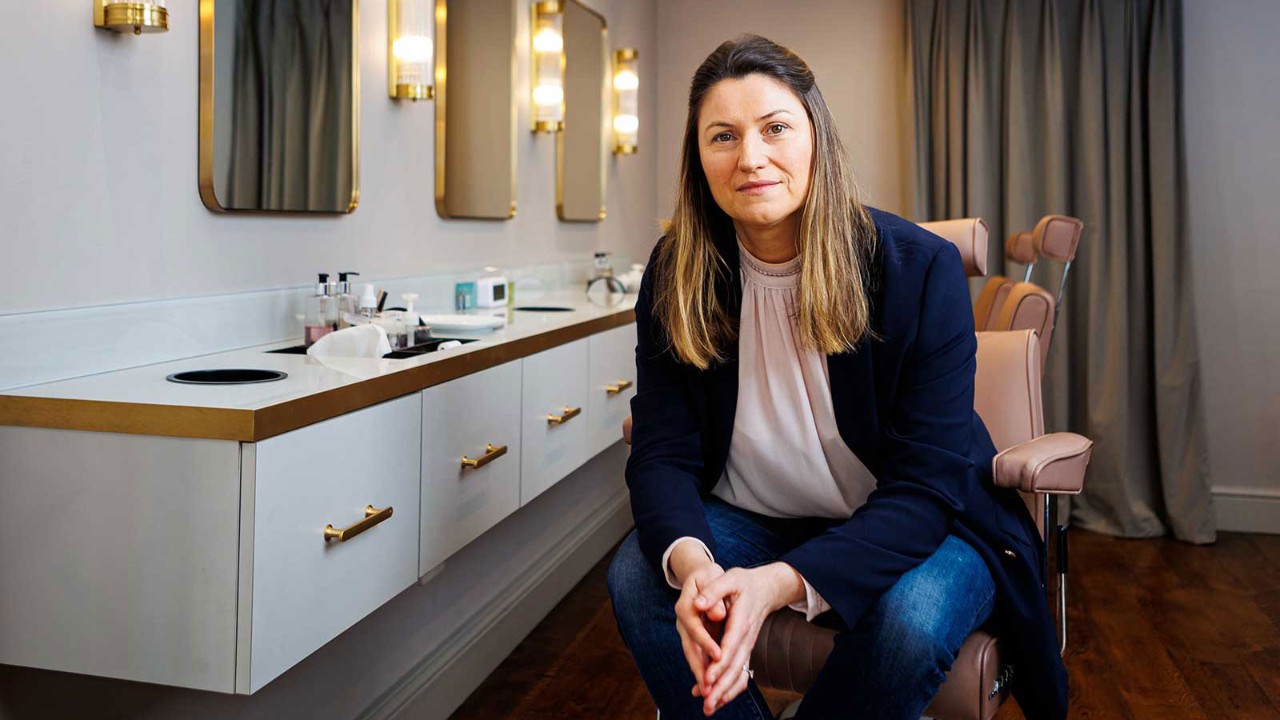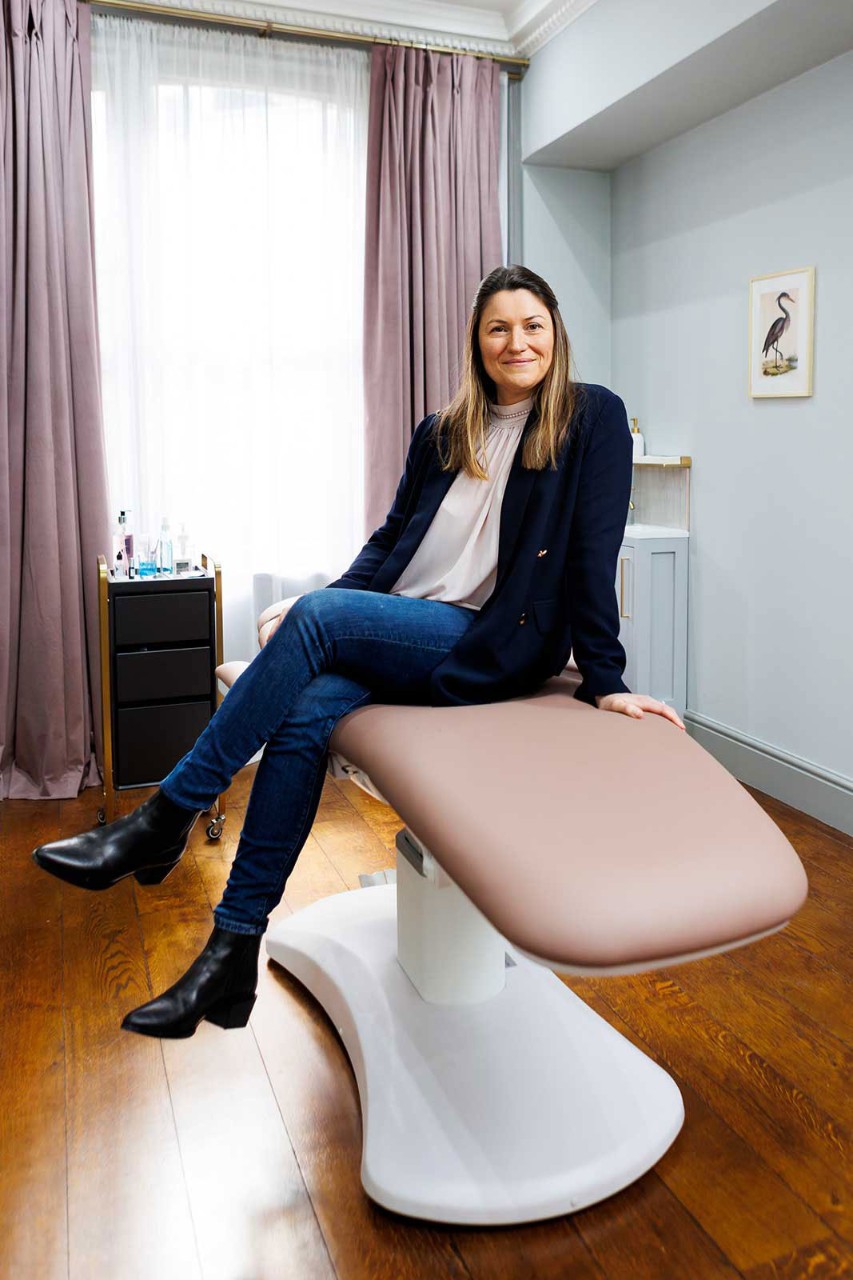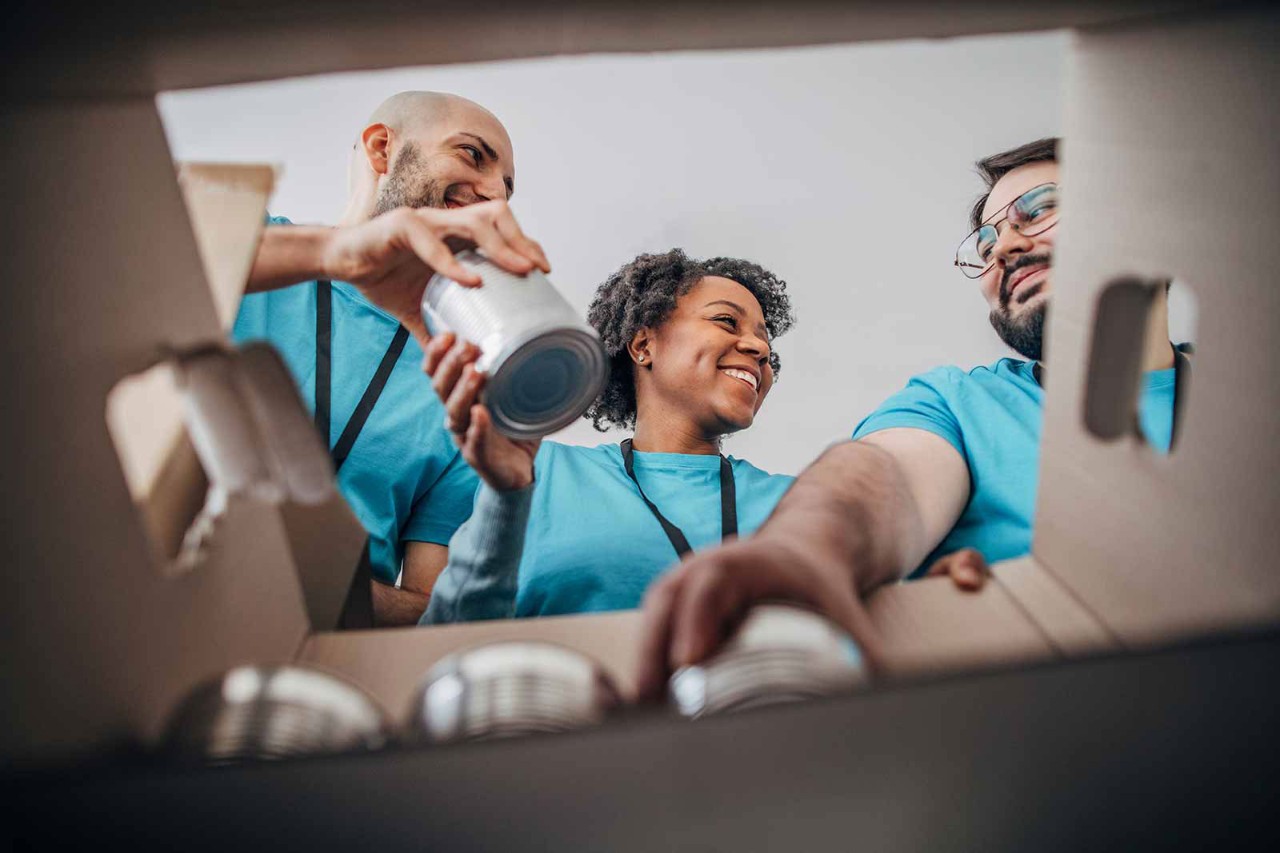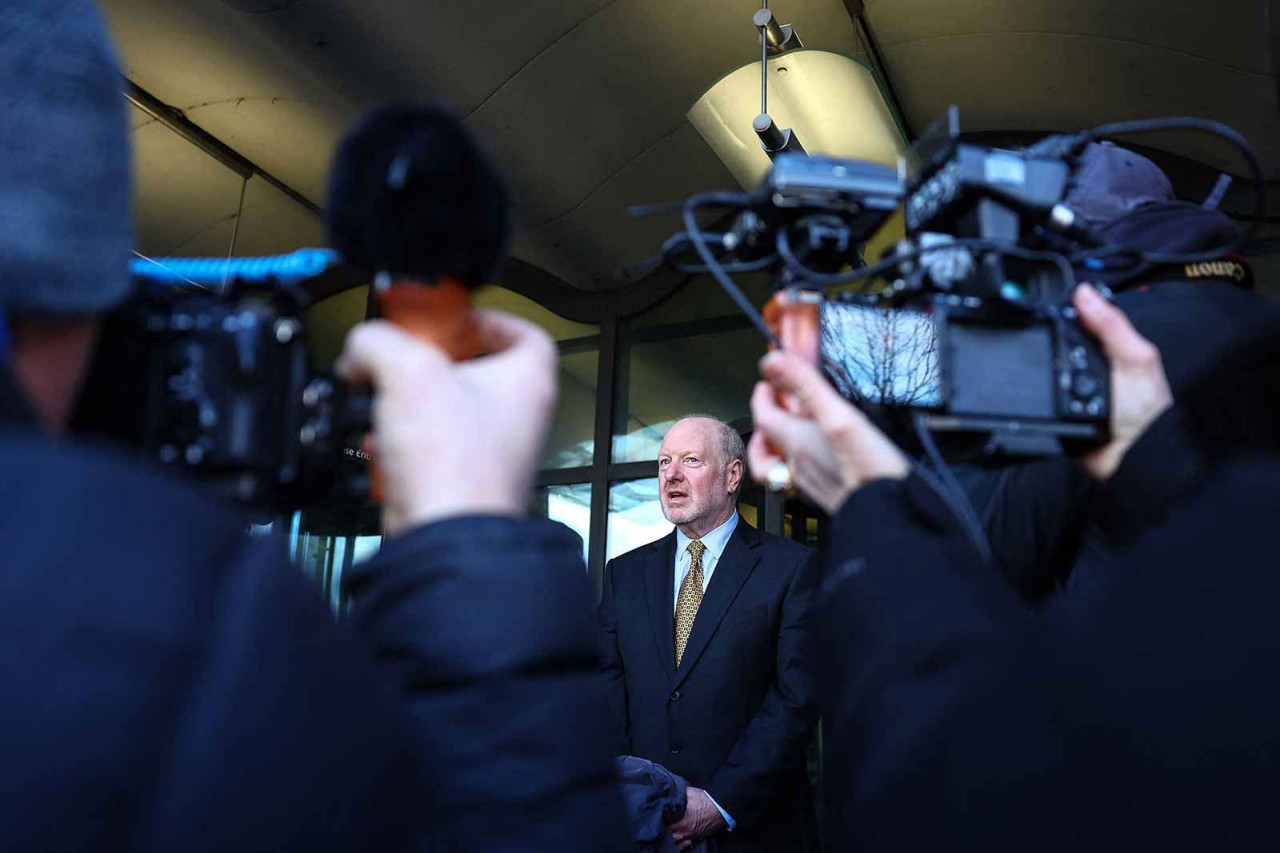
The beauty and personal care sector is both an engine of the UK’s economy – projected to be worth £13.3bn this year – and a breeding ground for entrepreneurs. It is estimated that more than 5,000 brands operate in the sector in the UK, more than 95% of which are SMEs. The sector employs more than half a million people, 88% of whom are women.
Blink Brow Bar (BBB), which provides eyebrow threading and brow-care services, is a textbook example. It was established in 2004 by Vanita Parti, a former brand manager at British Airways, after she struggled to find threading services – a routine beauty treatment in India, where Parti had spent time – at home in London.
The business began with a single chair at Fenwicks, a high-end department store in London’s West End, and today has outlets in 15 locations across the UK, with 183,000 customers a year and turnover of £6.5m.
‘I’ve always enjoyed retail – it’s so fast-moving. You have to be on your toes’

Overseeing the finances of the all-female business is Kate Pogson FCCA, who has spent the past 14 years in the retail sector. While training with Cooper Parry in Nottingham, she saw first-hand the potential of fast-growing, owner-managed retailers (both Aldi and Wilkinsons were audit clients).
‘I’ve always enjoyed retail – it’s so fast-moving and everything can change from week to week,’ she says. ‘You have to be on your toes all the time.’
Pull of the SME
Pogson joined BBB in 2017 after a decade working for larger retailers, including Joules, All Saints and Hugo Boss, but ‘the pull of owner-managed businesses’ still remained.
‘You can really make an impact in an entrepreneur-type business – big corporates have a legal department and a tax department, and so on, but in a small business it’s just you, and you have to wear all the hats. There’s no one to ask, you just have to get on with it. So I had to decide whether to carry on with the corporate world or dare to go somewhere smaller where I could have the number one finance role.’
Dare she did, and barely three years after joining BBB was plunged into the pandemic. ‘We had to close all the stores, and at one point everyone was furloughed apart from Vanita and me. It felt like decision after decision was thrown at you every day – it was pretty daunting. But if we can get through that, we can get through anything. We came out the other side a lot more agile.’
‘We want to scale up, and products are a massive part of that’
CV
2017
Head of finance, BlinkBrowBar
2012
Financial controller, Hugo Boss
2011
Management accountant, Hugo Boss
2011
Management accountant, All Saints
2010
Management accountant, Joules
2006
Audit senior, Cooper Parry
BBB’s survival when so many retailers foundered was down to its focus on cash. ‘When I joined the company in 2017, it was very much about top-line growth,’ she says. ‘Cash profit wasn’t seen as so relevant, so there wasn’t much focus on the bottom line.
‘Therefore, I put in place cashflow modelling, as well as monitoring of a lot of key metrics such as margin profitability across all channels, overhead cost management, stock replenishment and profitability of new products. And we shifted towards standalone boutiques rather than concessions in other stores because they are more profitable for us.’
Around 80% of BBB’s revenue comes from services and 20% from selling products, a revenue stream that took off during the pandemic. ‘Selling products through our website had only been ticking along at that point; it was all about the salons. But that took off and it’s something we’ve run with. We want to scale up, and products are a massive part of that.’
Going global
International growth will come mainly from the products business, she adds, rather than expansion of the salons, despite the temptation of strong demand in the Middle East and Asia. The business currently has nine concessions and six of its own standalone stores in London and Manchester, as well as two overseas franchises – in Le Bon Marché in Paris and in Saks Fifth Avenue, New York.
‘The brow bars themselves are investment-heavy and take a lot to manage when they are abroad, so we would prefer to do that in partnership with someone else. But there is a massive opportunity on the products side. We want to invest wisely, without being too safe in the short term.’
The potential for the business is considerable, given that the obsession with eyebrow shaping among a significant proportion of the population shows no sign of fading. The recent Instagram and celebrity-fuelled fashion for microblading is an indication that, while trends may change, eyebrow-grooming revenue will probably endure. The next target, says Pogson, is to reach £10m annual revenue.
‘People still want to treat themselves to a lower-cost beauty treatment rather than buy an expensive jacket’
‘It’s more important than ever that we have a really clear and concise three-year plan,’ she says. ‘We want to open a few more salons at key locations so our customers can reach us easily, but products online and wholesale partners are going to be important for us in the UK and overseas.’
Keeping a clear focus, she adds, is her biggest challenge. ‘Retail, and the wider macroeconomic world, is so volatile since the pandemic. We need to be really nimble because we know that everything can change very quickly. The first half of last year, for example, was very buoyant, but then the cost-of-living crisis kicked in and we saw a change in customer numbers, with the Christmas peak coming a lot later than usual.
‘We have that “lipstick effect” that shields us from the worst of a recession – people still want to treat themselves to a lower-cost beauty treatment rather than buy an expensive jacket or handbag – but the challenge now is to grow, with profitability.’



